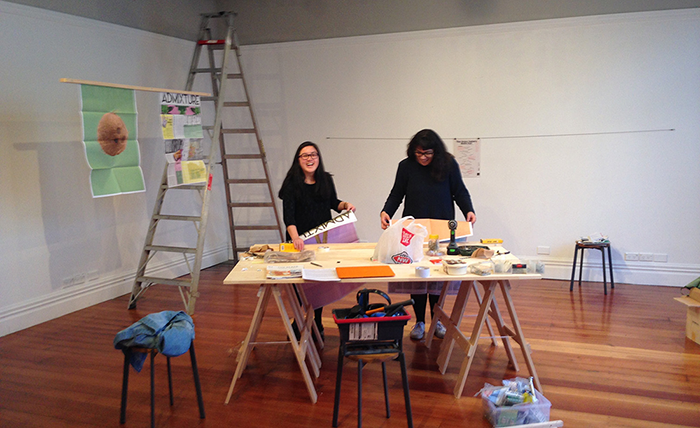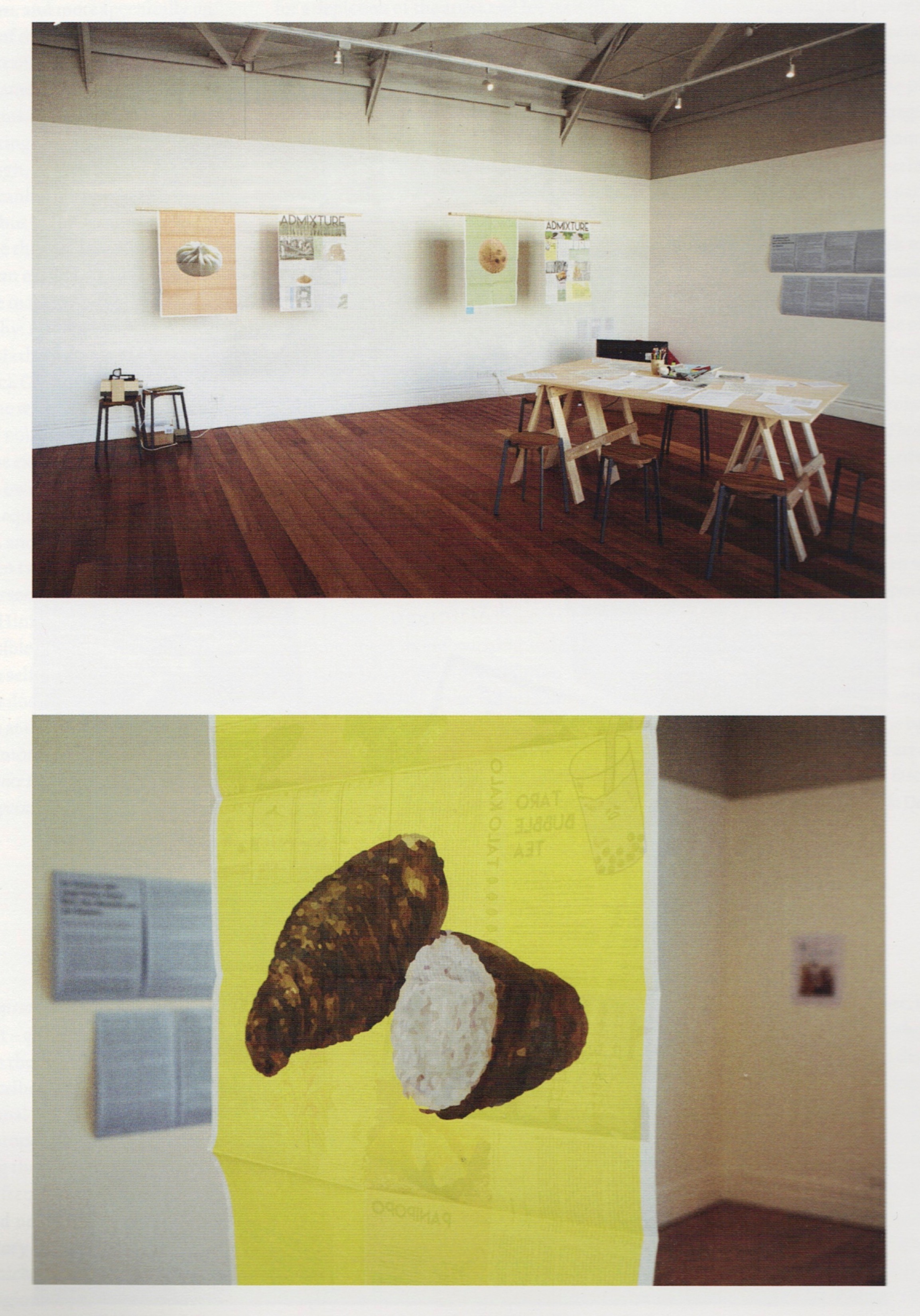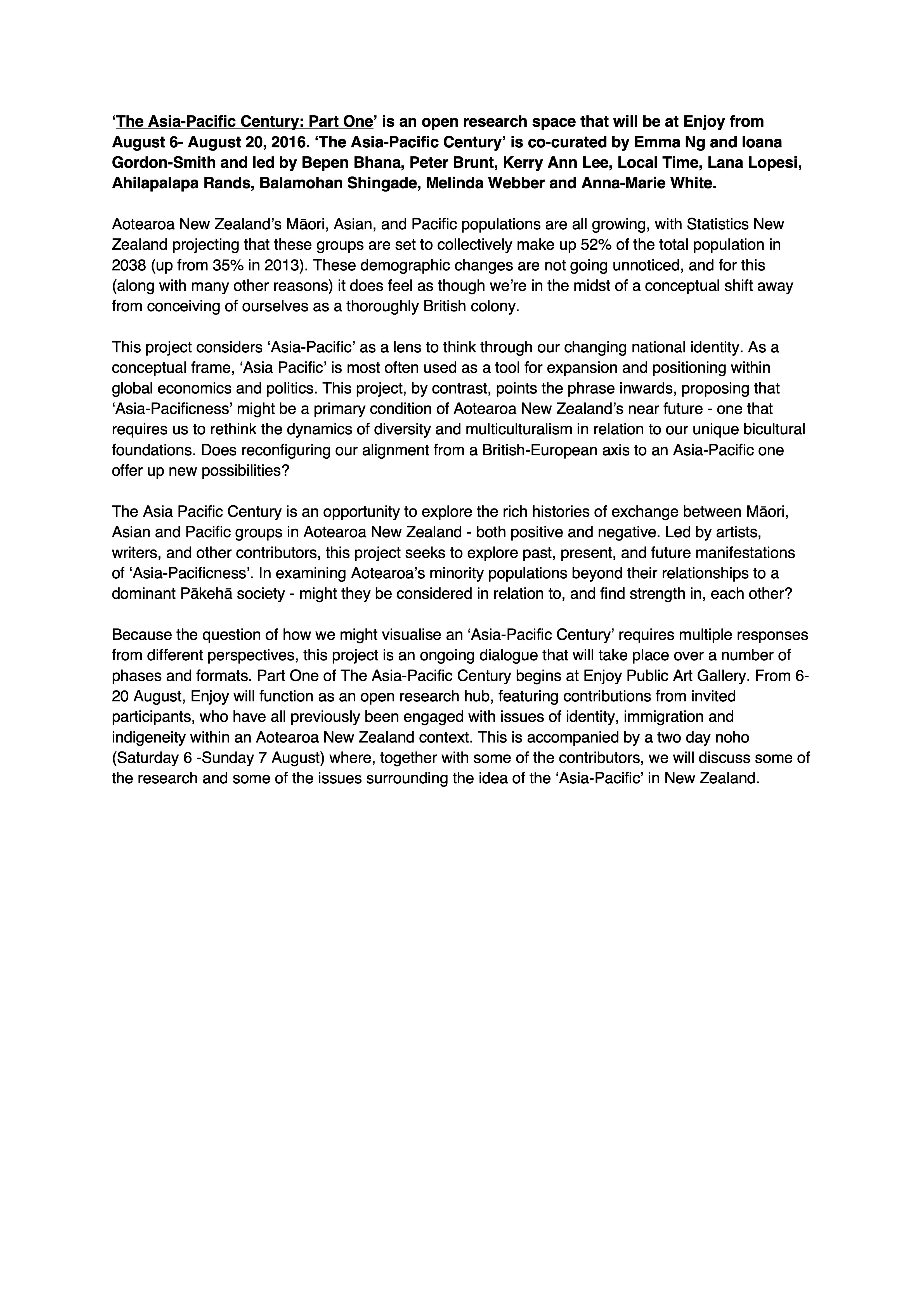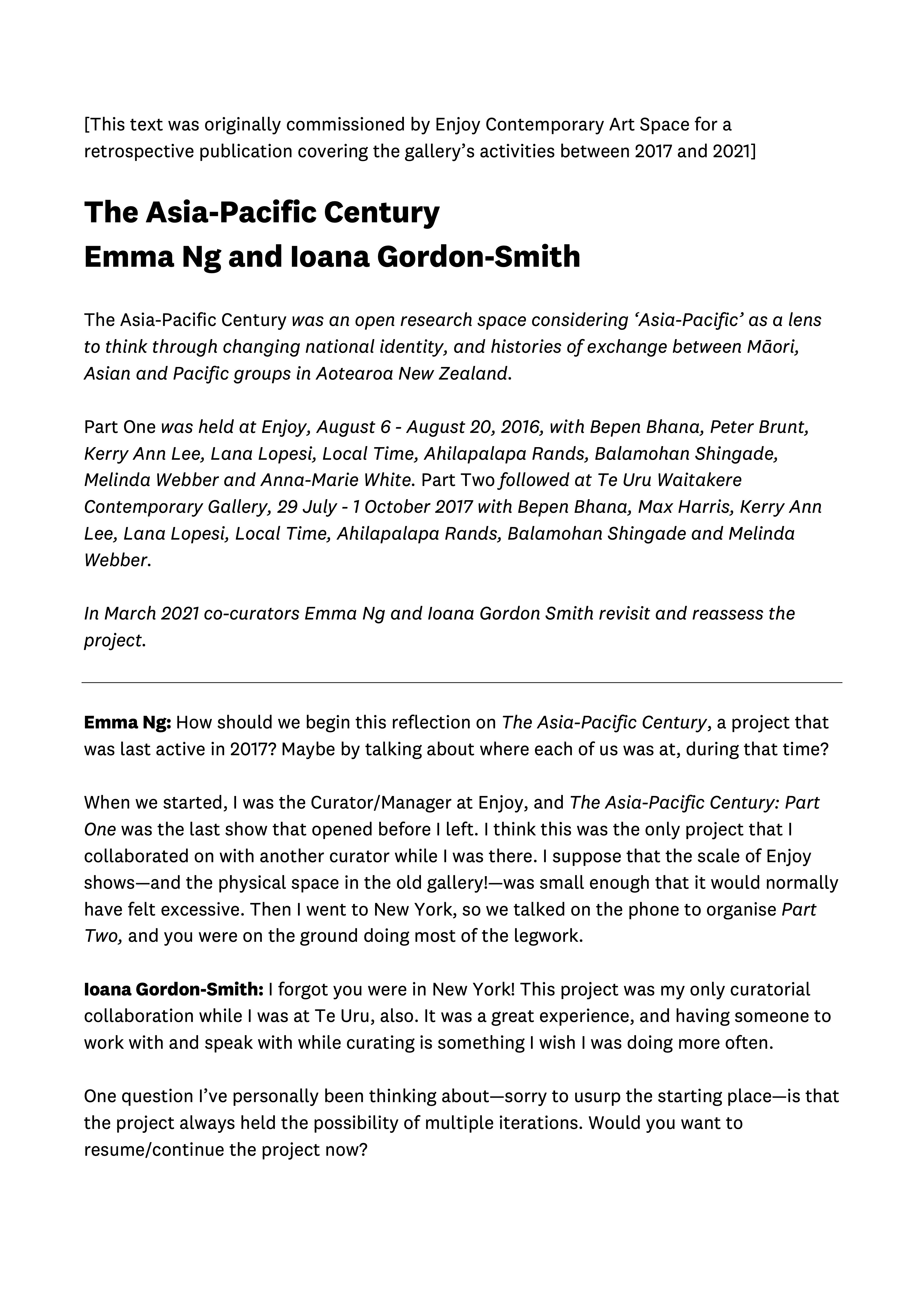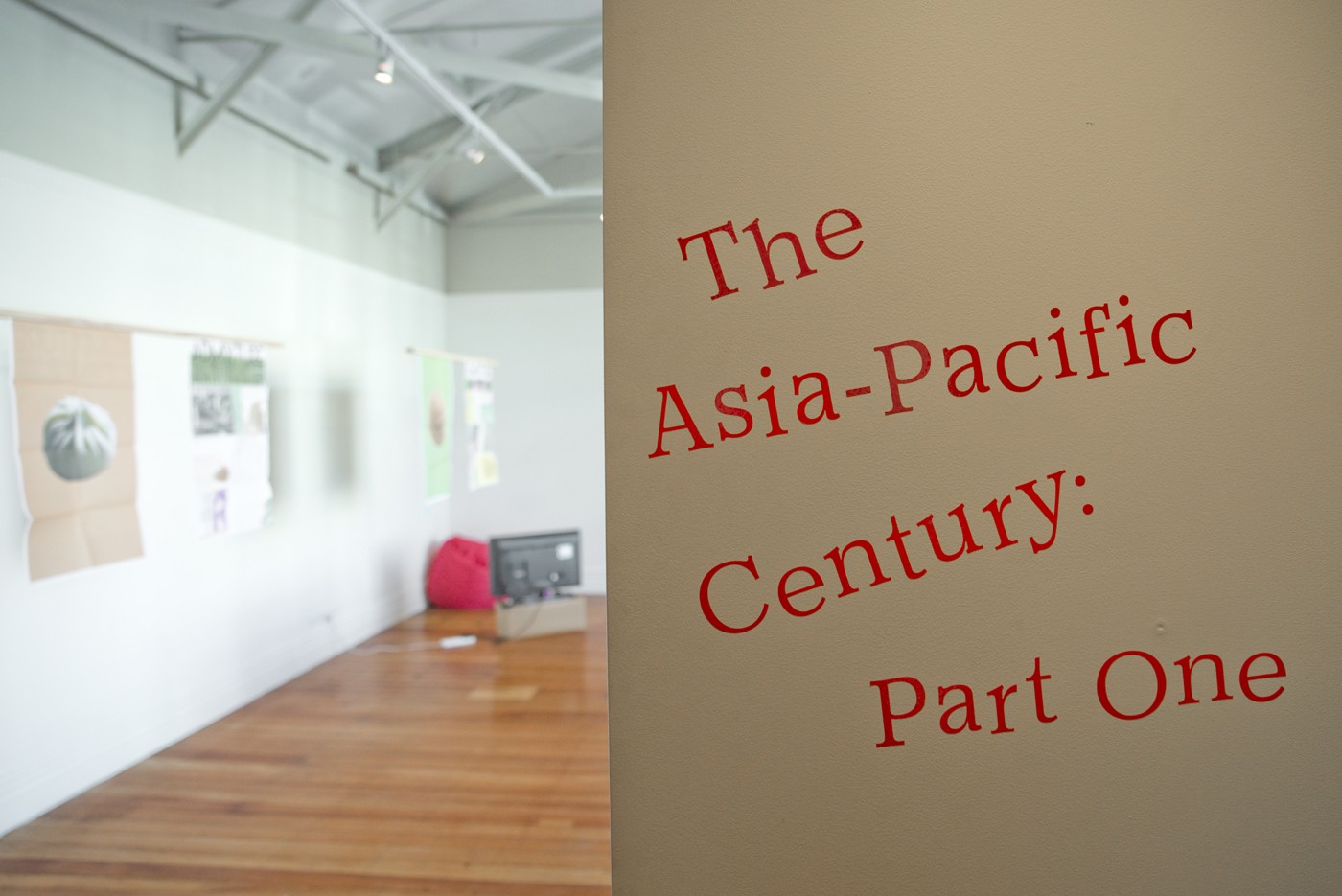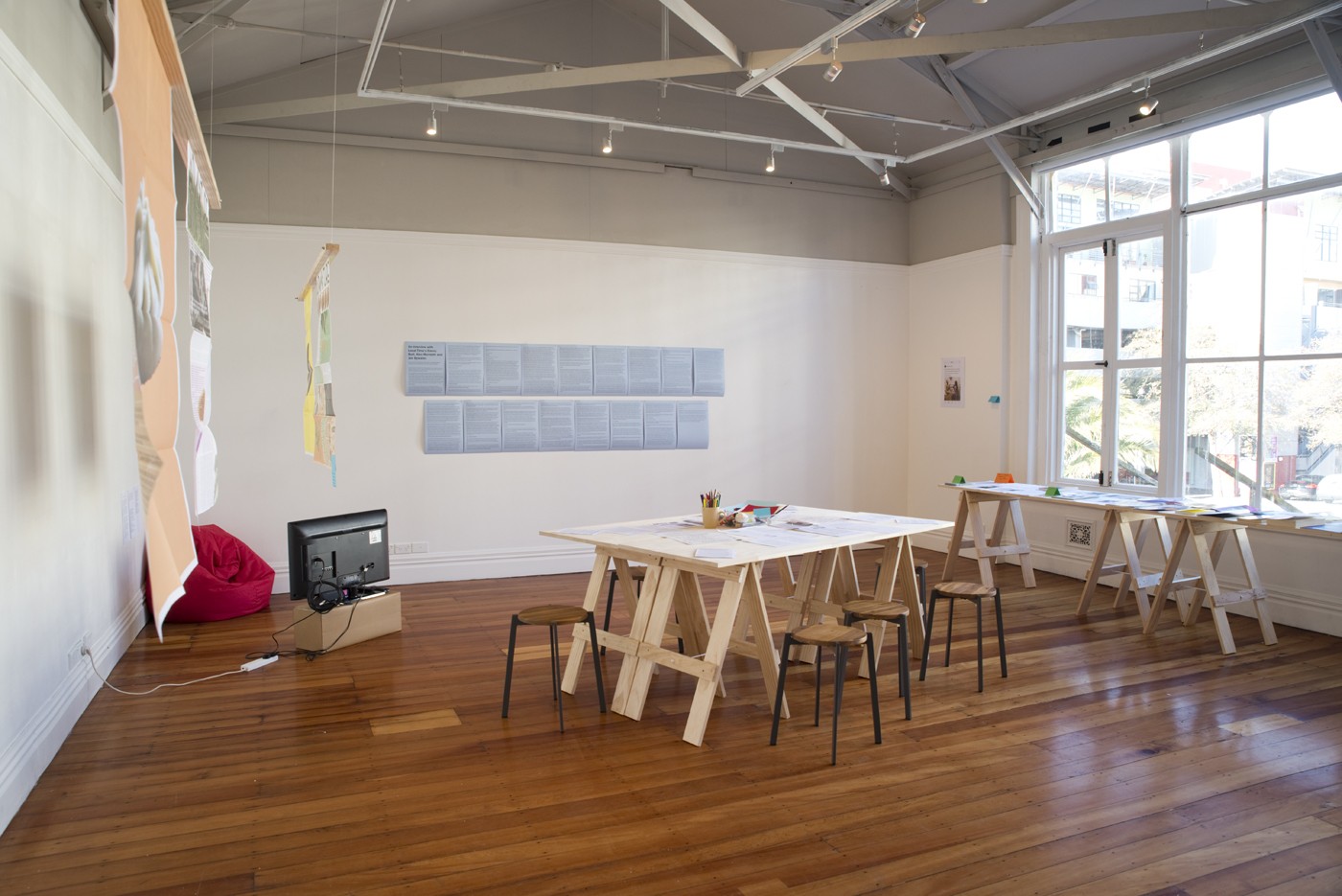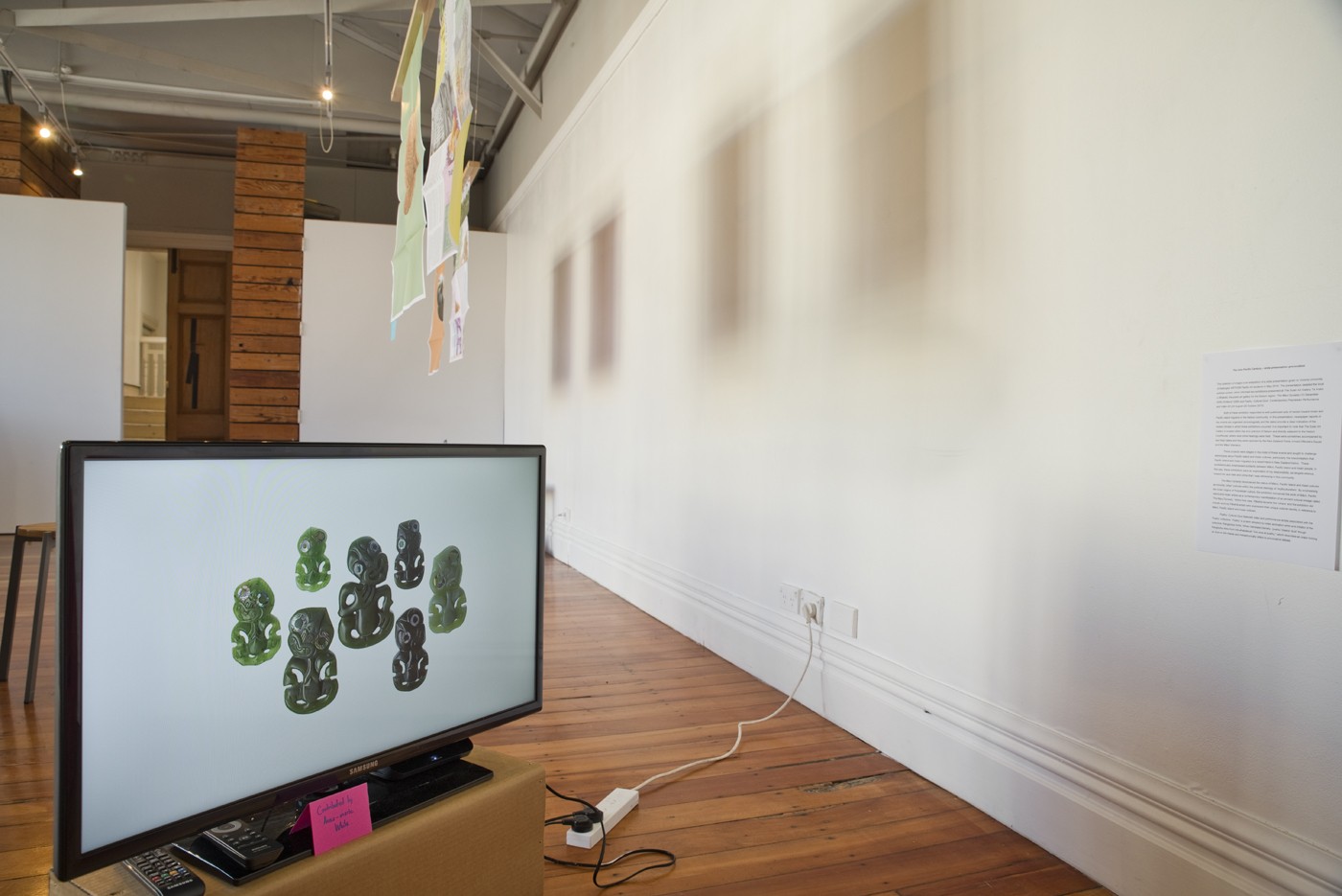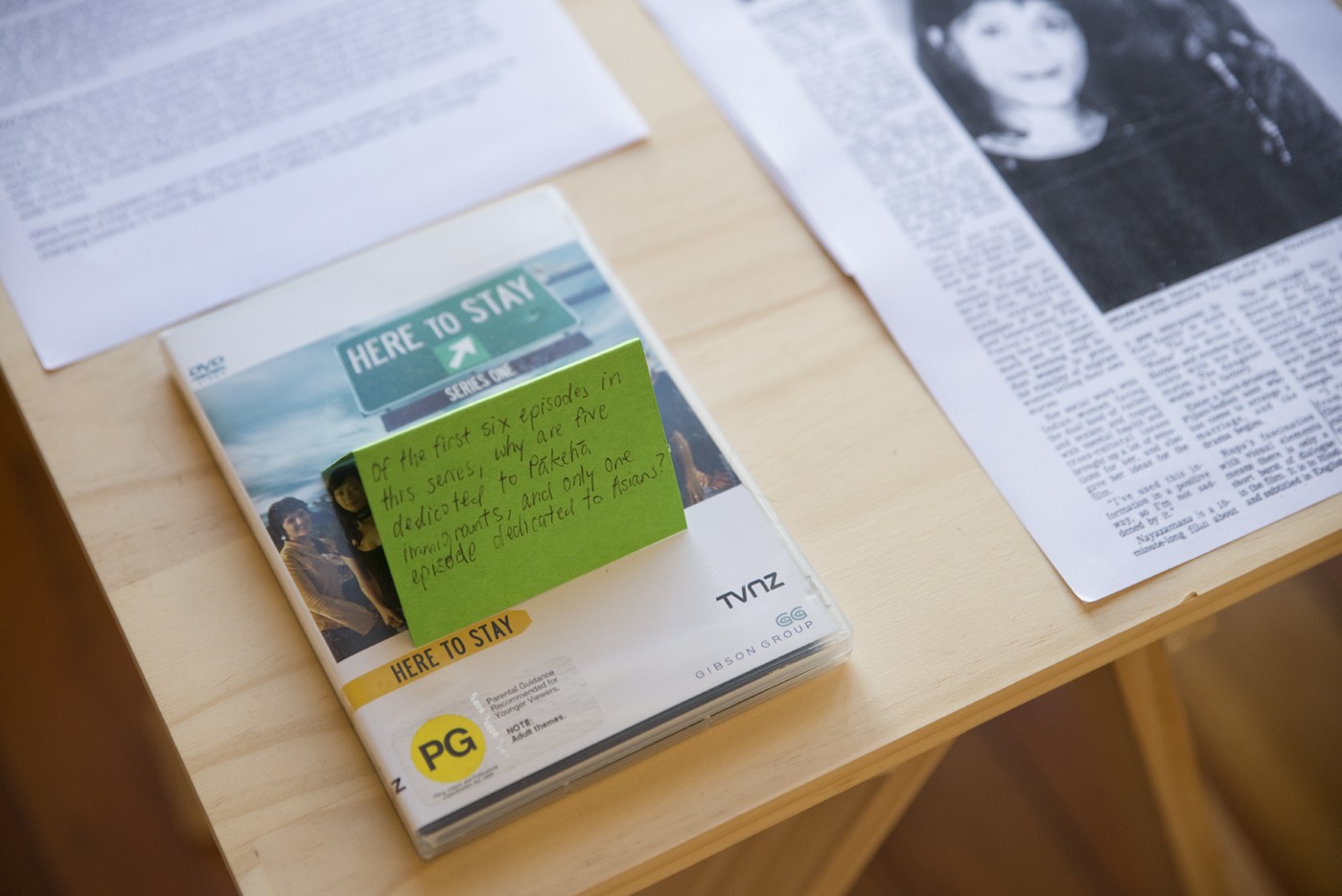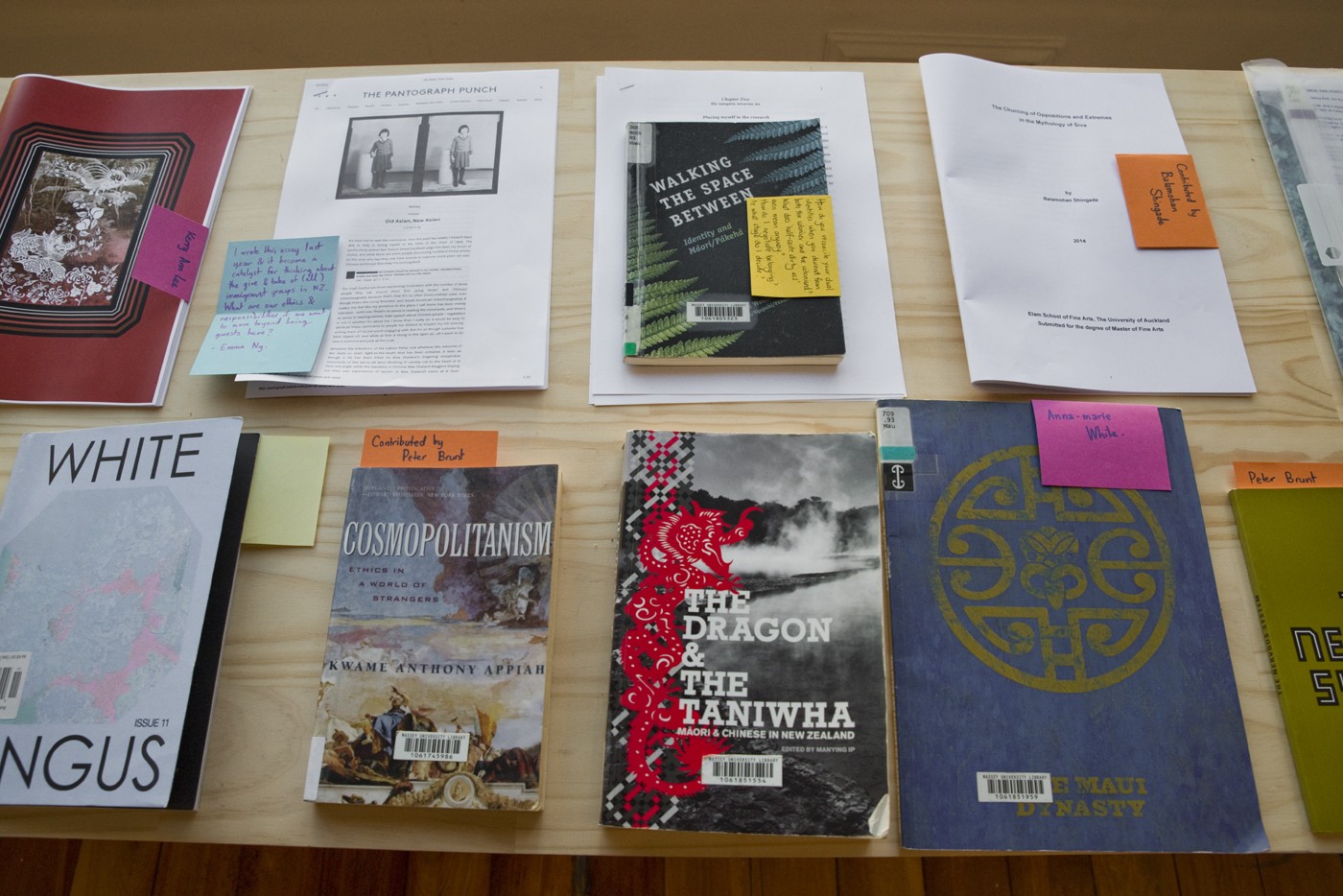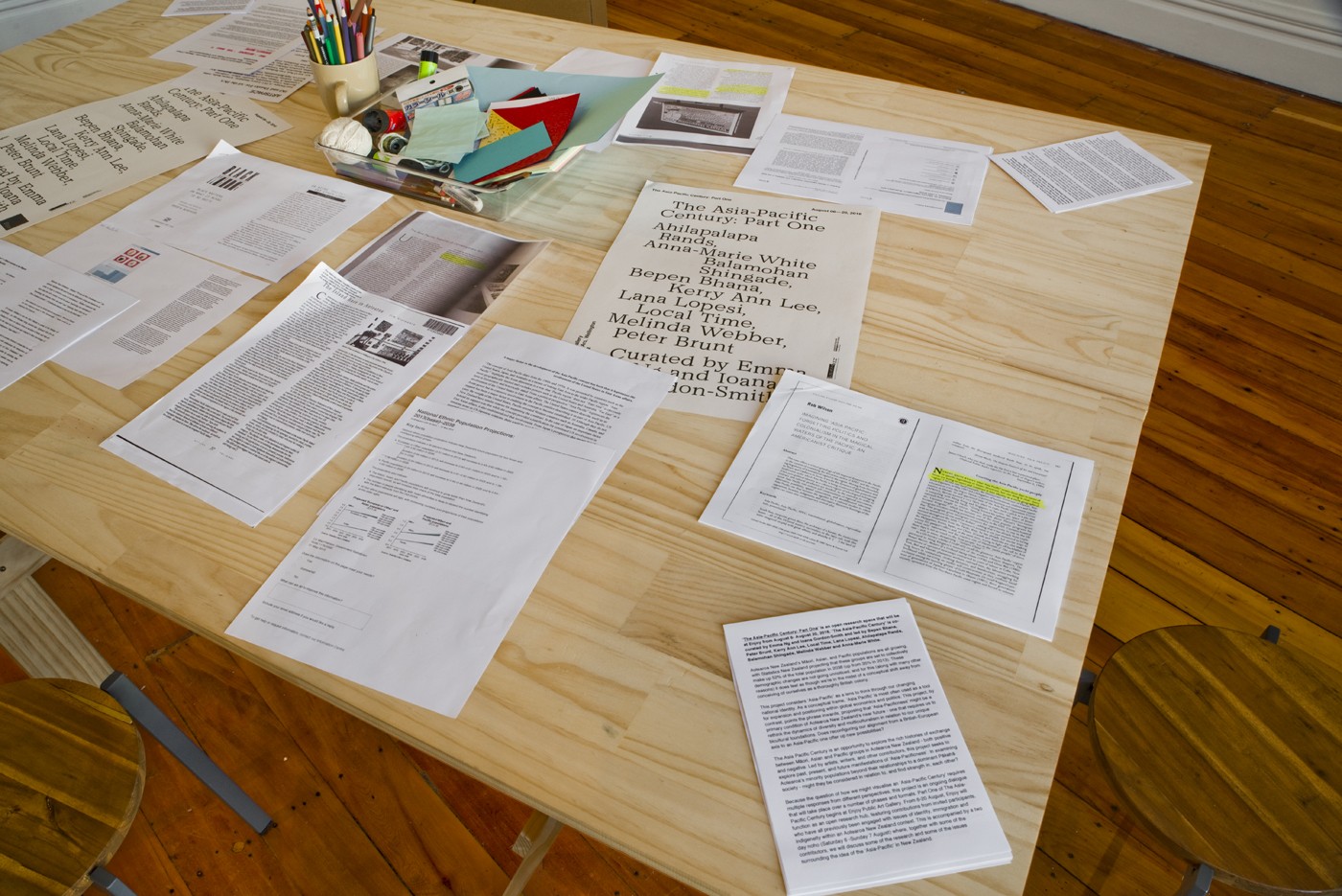INFO
| Name | The Asia-Pacific Century |
| Year | 2016 |
| Start Date | 6 August 2016 |
| End Date | 1 October 2017 |
| Curator | Ioana Gordon-Smith, Emma Ng |
| Organiser / Venue | Enjoy Contemporary Art Space, Te Uru Waitakere Contemporary Gallery |
| Artform | Visual arts |
| Decades Active | 2010s |
| City | Pōneke Wellington, Tāmaki Makaurau Auckland |
ABOUT
The Asia-Pacific Century was a project initiated by curators Ioana Gordon-Smith and Emma Ng, who at the time were working at Te Uru Waitakere Contemporary Gallery and Enjoy Contemporary Art Space, respectively. It was a two-part project spread across the two galleries, bringing together Asian, Pacific and Māori artists to explore issues related to immigration, identity and indigeneity within the context of Aotearoa. In particular, the project responded to the Statistics NZ projection that “over the next 20 years, Aotearoa New Zealand’s Māori, Asian, and Pacific populations will grow to collectively make up over 50% of the total population.” It was a project that evolved fairly organically, without determined outcomes, with the intention of “working together through the questions we face as our national identity continues to evolve.”
The Asia-Pacific Century: Part I took the form of a research hub at Enjoy, featuring contributions from invited participants whose existing research or practice engages with issues of identity, immigration and indigeneity within the context of Aotearoa. Contributors included Bepen Bhana, Peter Brunt, Kerry Ann Lee, Local Time, Lana Lopesi, Ahilapalapa Rands, Balamohan Shingade, Melinda Webber and Anna-Marie White — and their contributions ranged from reading material to artworks, to conversation transcripts, to slideshows. A two-day noho gathered together some of the contributors to begin discussing issues emerging from this idea of the 'Asia-Pacific'.
Reviewing the first iteration for ArtReview Asia, curator and art historian Vera Mey noted that the presentation of these ideas “in an artist-run project space rather than a more formalised institution might come as a surprise.” (ArtReview Asia Vol. 4, No. 4, p. 102). Mey also observed that the curators:
turn to the somewhat safer realm of research. As if in recognition of the difficulty that artists might face in materialising this enquiry and in moving beyond the rhetoric of 1990s identity politics, the exhibition follows a well-worn pattern of privileging discursivity, presenting research and talking about works-in-progress.
The Asia-Pacific Century: Part II, held at Te Uru, saw the evolving group continue to think through the relationship between the bicultural foundations of Aotearoa and our diversifying society. Following on from Part I, Part II was deliberately grounded at an empathetic human scale — against a background in which discussions of diversity are often driven by political and economic agendas. With this in mind, the works in the exhibition explored language, interpersonal connections, and the material culture of everyday life. Contributors to Part II included Bepen Bhana, Max Harris, Kerry Ann Lee, Lana Lopesi, Local Time, Ahilapalapa Rands, Balamohan Shingade and Melinda Webber. Visitor responses were welcomed, with large boards posing questions, such as “Where have you met people from other backgrounds? What is the first thing you ask someone when you meet them for the first time?”
Francis McWhannell wrote in The Pantograph Punch:
I am particularly impressed by The Asia-Pacific Century: Part Two. Following on from The Asia-Pacific Century: Part One, held at Enjoy Public Art Gallery in Te Whanganui-a-Tara Wellington last year, it explores Aotearoa’s transition from a pākehā-dominated country to one more grounded in its Asia-Pacific location and in the peoples and cultures of this region. It is a generous and inviting exhibition, with works that encourage visitors to touch, write, and talk – as well as to look, read, and reflect.
The Asia Pacific Century: talkfest was an event held as part of the iteration at Te Uru in 2017. It was a one-day mini-symposium that shared existing research on the impact of increasing Māori, Asian and Pacific populations and the consequent possibilities for reconfiguring relationship dynamics. The speakers were drawn from a number of fields and included Tahu Kukutai, Trudie Cain, Damon Salesa and Julie Zhu. The talkfest was supported by the Asia New Zealand Foundation and was co-hosted the Capturing the Diversity Dividend of Aotearoa New Zealand (CaDDANZ) research team.
The project was open-ended, with the intention that more publishing and public programming activities might take place, but this never eventuated. Reflecting in 2021, on unrealised ideas the curators had for the project, Emma Ng said:
I at least feel satisfied that the project was a catalyst for other things. I finished writing Old Asian, New Asian in the 6 months following, and The Asia-Pacific Century definitely helped me work through ideas about being tauiwi that are expressed in that book. And I feel like the project helped me get something out of the way, to put some ideas down, then round the post and move on.
LINKS
Key works / presentations
The Asia-Pacific Century: Part I
August 6–20, 2016
Enjoy Contemporary Art Space, Pōneke
The Asia-Pacific Century: Part II
July 29–October 1, 2017
Te Uru Waitakere Contemporary Gallery, Tāmaki Makaurau





